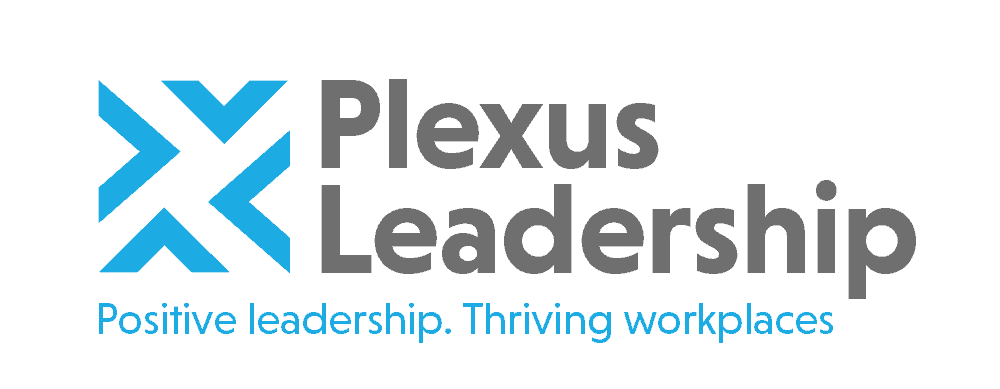HR and Talent functions have fought hard to improve their credibility and value in organizations in recent decades and have generally succeeded. However, unhelpful fads, buzzwords and pseudo-science still abound. There are a variety of concepts and terms that HR leaders and practitioners should reconsider using, or using more judiciously, as they can be misleading, counterproductive and even undermine performance and morale. The widespread use of these concepts and terms also pre-supposes techniques and approaches to implement the concepts are backed by strong evidence. However, this evidence is often lacking, contradictory or inconclusive. Some of the main culprits that need to be questioned are:
Smart and smarts
“Brian is super smart” says the Head of People. But what exactly does this mean? “Smart” is an umbrella term that has little meaning beyond being an unhelpful substitute for IQ, an equally controversial and problematic concept, albeit better than “smart”. And here’s why? Brian might be highly analytical and logical and be good at solving Sudoko puzzles. However, this doesn’t make him effective across all intelligence domains identified by Howard Gardner in his work on multiple intelligences. Similarly, the fact that recently sacked Westminster aide Andrew Sabisky read books like Superforecasting and had an interest in eugenics doesn’t make him a smart person. He may have certain intellectual gifts, but common sense is clearly not one of them.
The long association of this term with elite private schools and Russell Group universities perpetuates the ‘old boys’ network. It invites a sense of intellectual and career entitlement amongst those in the ‘club’. Conversely, those kept outside feel excluded and unfairly judged as not having the “smarts” to compete on a level playing field.
In workplaces where “smarts” are highly valued, diversity and inclusive thinking are undermined as people who are creative, intuitive or pragmatic thinkers are often not see as being on the same intellectual level as those who are good at analytical and critical problem-solving. Yet organizations who fill their offices with “smarts” are often the ones that fail in a big way, as we saw with Enron, Arthur Andersen and Lehman Brothers. In today’s fast changing world, it takes all types of intelligence to tackle tough and unprecedented problems. Most importantly, leaders and teams need to be curious, committed to continuous learning, resilient and collaborative in order to succeed.
Emotional intelligence
Emotional intelligence is a word I still hear in every second conversation I have with people consultants and HR practitioners. I often fall into the trap of using it too in discussions with HR and L&D professionals. Even though I don’t like the term, it’s become part of the common parlance of HR. Once an intriguing concept developed by Daniel Goleman, it is now fast losing its value. It’s becoming merely another buzzword that provides little meaning and value to companies. The growing and erroneous assumption in many organizations today is that every leader and team member need to possess high EQ. However, this is not supported by anecdotal or academic research which shows that the relationships between EQ and leadership outcomes are complex and contradictory at best.
It is undeniable that leaders need to be reasonably self-aware, have good social skills and deal effectively with their followers’ emotions, as well as their own. This is especially true in times of crisis, hardship and great change, such as the COVID-19 crisis being experienced currently. However, this doesn’t mean that every leader in the company needs to be an emotional guru. For example, Steve Jobs didn’t appear to have particularly high EQ (based on Goleman’s EQ qualities) and yet he was arguably one of the most effective executives in recent decades based on the value he produced for employees, shareholders and society.
Let’s stop using emotional intelligence in such a general and meaningless way and start referring to specific emotional qualities and skills like self-awareness, empathy, compassion, social skills, emotional regulation, etc. Rather than assuming everyone needs to be at the same high level for each of these emotional qualities and skills, let’s build workplaces where people who have lower natural talent in one or several of these areas can perform roles that don’t require those qualities or partner with colleagues who have emotional talents in areas they lack.
All-rounders and well-rounded performers
There are no all-rounders. Period. Everyone has natural and learned talents, however, they also have weaker areas, performance risks and vulnerabilities. We need to stop talking about well-rounded performers and leaders. Instead, we should build high-performing teams of diverse people with different strengths, skills, backgrounds and cognitive styles to achieve great results. This means replacing ‘one-size fits all’ competency-based HR and development systems and processes that attempt to build organizations of well-rounded performers to more personalized and flexible approaches that attract, develop and recognize excellence across a diverse range of talents, strengths and performance areas.
Engagement
Improving employee engagement became a primary goal and even obsession of many HR departments during the past two decades. Yet engagement data from most reputable sources in the UK and US shows that engagement levels have declined over this period. So this is not only a fad that has lost meaning because it’s used so much, it is also one that seems to offer very little value in the business context. The reason is simple. Engagement is an outcome and as such it offers little insight into the drivers of a person’s motivation, fulfilment and psychological connection with their role and employer. HR departments have spent years doing expensive surveys to show whether people are engaged or not, yet this won’t improve engagement. What improves employee motivation and satisfaction (much better terms) is improving the employee experience. This can be done is various ways, the most powerful of which are providing employees with more autonomy, appreciation, challenge and support to enrich their jobs and work lives. Moving the focus from engagement to “employee experience” will enable you to bring about meaningful and lasting improvement in motivation, employee satisfaction and performance.
Authentic leadership
Many organizations say they want to grow authentic leaders. What they mean is often unclear, however, the term generally refers to leaders who are self-aware, genuine, honest and emotionally tuned in. So far so good. Perhaps not if we remind ourselves that the purpose of leadership is to inspire and enable others to perform at their best so they can achieve shared goals and a common vision. Whilst improving self-awareness is of course a vital part of any leadership development solution, it should never be the end goal. Great leaders serve others and their organizations, often at the expense of their own personal goals. History reveals that they frequently endure hardship and struggles to achieve a better future for their people and the organization. In doing so they find meaning and inner happiness, not the other way around.
The other concern I have about the rapid growth in popularity of authentic leadership is that some leaders use authenticity as an excuse to bring their worst (rather than their best) selves to work. Authenticity taken to the extreme can mean that leaders who are dysfunctionally deviant, ego-centric or manipulative (e.g., bullies, narcissists, psychopaths or rule-breakers) can hide behind the excuse that they are simply being themselves, albeit a bit weird or eccentric.
Finally, the research on authentic leadership and effectiveness is far from conclusive and certainly doesn’t yet support the theory that leaders who are authentic produce better results and value for their organizations.
Millennials
This collective term enjoys widespread use in HR and business circles, along with other generational terms like Gen-Zers (those born between 1996 and 2010) and Gen Yers (those born after 2010). “Millennials” is a collective term used to describe those born between 1981 and 1996. This group probably make up a huge proportion of your workforce and are increasingly influential in leadership and organizational decision-making.
So, what’s the problem? This compelling and over-simplistic label has become unfairly associated with a homogenous set of beliefs, assumptions and even personality traits that this huge and diverse group is purported to possess. It is even used pejoratively to label this group the “snowflake generation”, or people who feel entitled and are less resilient than previous generations. Yet published, high quality research doesn’t support the homogeneity or lower resilience of this group. Like any diverse group of this nature, we need to move away from group labels and stereotypes to understand how individuals differ and what makes them unique.
By using language, concepts and techniques with more care and consideration, HR and Talent leaders will improve their credibility, effectiveness and outcomes. By being more critically minded, curious and moving towards an evidence-based approach (now encouraged by professional bodies like CIPD), they can check the appropriateness and evidence behind concepts and approaches before introducing them to their organization.
Other Posts

About the Author
James Brook
Founder and MD | Leadership Consultant | Organizational Psychologist
James is a leadership consultant, organizational psychologist and executive coach. He has over 25 years’ experience working with leaders, teams and organizations globally to optimize their performance, talent and future success. He specializes in positive leadership, thriving workplaces, collaboration and influencing, organizational change and transformation, accelerating innovation and coaching executives and leaders in innovative sectors including Tech, Digital, E-commerce and Life Sciences.
Before setting up Plexus Leadership, James held leadership roles in HR and Talent Management in the UK and abroad with companies such as NatWest, Yahoo! and Novo Nordisk Pharmaceuticals. After this, he founded and led several talent and leadership consulting and assessment businesses, including Strengthscope®, an online strengths assessment and development business serving a wide range of UK and global clients. James grew this venture into a global market leader before selling the business in 2018.
James has supported, advised and coached leaders and teams globally across diverse industries and geographies. Clients he has worked with include Allen & Overy, Commvault, Equinor, Facebook, GSK, Hilton, John Lewis, Novartis Pharmaceuticals, NHS, Oracle, Sainsbury’s, Swiss Re, Tesco, Takeda Pharmaceuticals, WSP and Yahoo!.
James has a Master’s in Organizational Psychology, an MBA, an Advanced Diploma in Executive Coaching and a Harvard Business qualification in Sustainable Business Strategy. He is a member of the Institute of Directors, the Association of Business Psychologists and a Fellow of the Chartered Institute of Personnel and Development (FCIPD). He is currently undertaking a PhD in Organizational Psychology examining the start-up experiences of Tech and Digital entrepreneurs.
James is a regular contributor and speaker on leadership, coaching, innovative talent management and the future of work. His most recent book, Optimize Your Strengths, explores how leaders can create thriving workplaces by inspiring and supporting people to optimize their potential and teamwork to deliver breakthrough results.




